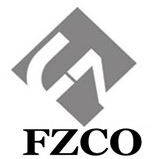Finance Law in France for 2022
Finance Law in France for 2022 confirmed the upcoming changes in the French DEB (Declaration des Echanges de Biens) return as from reporting period January 2022. Until now, France integrated both obligations of Intrastat and EC Sales List report within DEB return. It is including detailed DEB submission when the EU sales exceed the 460,000 EUR threshold. From 1 January 2022, this declaration replaced the following reports:
- Intrastat (déclaration l’enquête statistique)
- EC Sales Listing of goods (l’état récapitulatif des livraisons de biens intra-UE)
The previous obligation for filing declaration EC Sales List of services (“DES”) will not change.
EC Sales List and INTRASTAT returns replace DEB in France
Amendments Introduced by the Finance Law for 2022
The French Finance Law for 2022 has entered into force on 1 January 2022. It has introduced amendments on a number of grounds:
- Extension of reduced rate of 5.5% on masks, protective clothes, and sanitisers until 31 December 2022
- Optional VAT for banking and financial sector on a transaction-by-transaction basis instead of the whole of their operations
- Abolishment of the possibility for import VAT payers to benefit from an additional period of two months to file the import VAT declaration
- New requirements for VAT representatives and intermediaries appointed for the use of IOSS, such as adequacy of means and financial solvency
- The declaration of trade in goods (DEB) is replaced by two separate forms. Namely the declaration of customers’ VAT recapitulative statements and the declaration of statistical data by businesses
Simplification measures put in place
Measures to simplify VAT rules and comply with EU VAT law. It include the VAT exemption on imports and supplies to EU bodies for COVID-19. Certain aspects of the EU e-commerce rules, and changes in the VAT option to tax rules for the financial sector. It allow the option to be applied by operation rather than globally on all operations.
This reform is accompanied by a number of simplifications designed to facilitate the procedures for businesses. Since the online VAT return will be pre-filled on the 14th of each month with the import VAT taxable bases. Payable in respect of taxable imports carried out during the previous month. It base on the data contained in the customs declarations. Businesses will be required to complete the declaration of taxable and non-taxable bases. The amounts due in respect of exits from suspensive arrangements, together with the related deductible VAT amount.
In addition, in order to allow taxpayers to check the information pre-filled in the VAT return. The customs authorities will provide them with a dedicated space on the customs.gouv.fr website accessible through a personal account created on this portal. Taxpayers will be able to download a table containing the data from the customs declarations.
VAT becomes payable upon payment of a deposit
Currently, two rules exist regarding VAT liability in the event of receipt of instalment payments. They depend on the legal nature of the sale. If it is a tangible good, no tax must be paid. Payment occurs when the transfer of ownership occurs (i.e., in most cases, when the invoice is issued). For the supply of services, VAT must be calculated and paid immediately. As of January 1, 2023, VAT will become payable (and correlatively deductible) upon receipt of instalment payments prior to the delivery of goods, according to Article 30. Until now, VAT was payable as soon as the chargeable event (the supply) took place. Even in the case of a down payment. In practice, therefore, VAT was payable as soon as ownership of the goods was transferred. The amended text provides that VAT is payable as soon as the deposit is paid and up to the amount of the deposit.
In cases of exchange of goods within the EU, one used to file (for statistical purposes, not for taxation) a monthly Intrastat return (called DEB in France) containing information about the intra-EU operations performed. From January 2022, substantial changes were made to this declaration since the information to be collected must now be divided between a statistical survey and a summary tax declaration.
This measure applies to advance payments made on or after January 1st, 2023.
The French finance law also made a significant change regarding import VAT management. A foreign company (i.e., not established in France) importing goods into Europe from a third country (e.g., USA, China, UK) must pay VAT when clearing the goods through customs. Import VAT may then reclaim under specific VAT refund procedures. Thus, there may a delay between the time the VAT is paid and the time it is actually refunded.
To avoid such pre-financing of VAT, many EU member states have introduced a reverse charge mechanism of import VAT. France notably change it’s rules on January 1, 2022. Through this reverse-charge mechanism, the import VAT must now be declared together with its claim for a refund. The pre-financing of the tax is thus eliminated. The new regime is now mandatory and automatic for all taxpayers identified for VAT in France, and all foreign businesses. Companies that do not have a French intra-EU VAT number but wish to carry out import operations in France. It must first request from the French tax authorities the allocation of a French intra-EU VAT number.
Electronic Invoicing Reform Postponed
France is generalizing electronic invoicing in transactions between VAT-payers, according to Article 93. The implementation of these measures initially planned for 2023 to 2025. It delay to the years 2024 to 2026, according to the following schedule: From July 1, 2024, for large companies, from January 1, 2025, for medium-sized companies, and from January 1, 2026, for small- and medium-sized enterprises.
Since 1st January 2020, all suppliers or subcontractors eligible for direct payment of contracts with the French State, local authorities and institutions (B2G) must send their invoices in electronic form. The 2020 Finance Act has provided for an extension to electronic invoicing regulations for business-to-business (B2B) transactions.
The entry into force of these measures, initially scheduled for January 1st, 2023, has been postponed according to the following schedule:
- From 1st July 2024 all taxable persons must accept e-invoices
- 1st January 2025: medium-sized companies must send e-invoices
- From 1st January 2026: SMEs and micro-companies must send e-invoices.
French overseas territories
Companies subject to corporation tax may benefit from a tax reduction on the basis of new productive investments they make in some French overseas territories. In regard to VAT exemption, the provisions under which enterprises whose turnover does not exceed €100,000 the previous year or €110,000. When the turnover for year n-2 did not exceed €100,000 may invoice their client without VAT. It extend to January 1, 2023 (Art. 33). Regarding the provision of services, the turnover of the supplier must be €50,000 the previous year or €60,000. When the turnover in n-2 was less than €50,000.
The operations of creation, registration, modification, termination, declaration, payment, etc., which companies currently carry out on a multitude of Internet sites, will now be centralized on the three following sites to be launched in 2022: – formalites.entreprises.gouv.fr, entrepreneur.service-public.fr and portalpro.gouv.fr.



